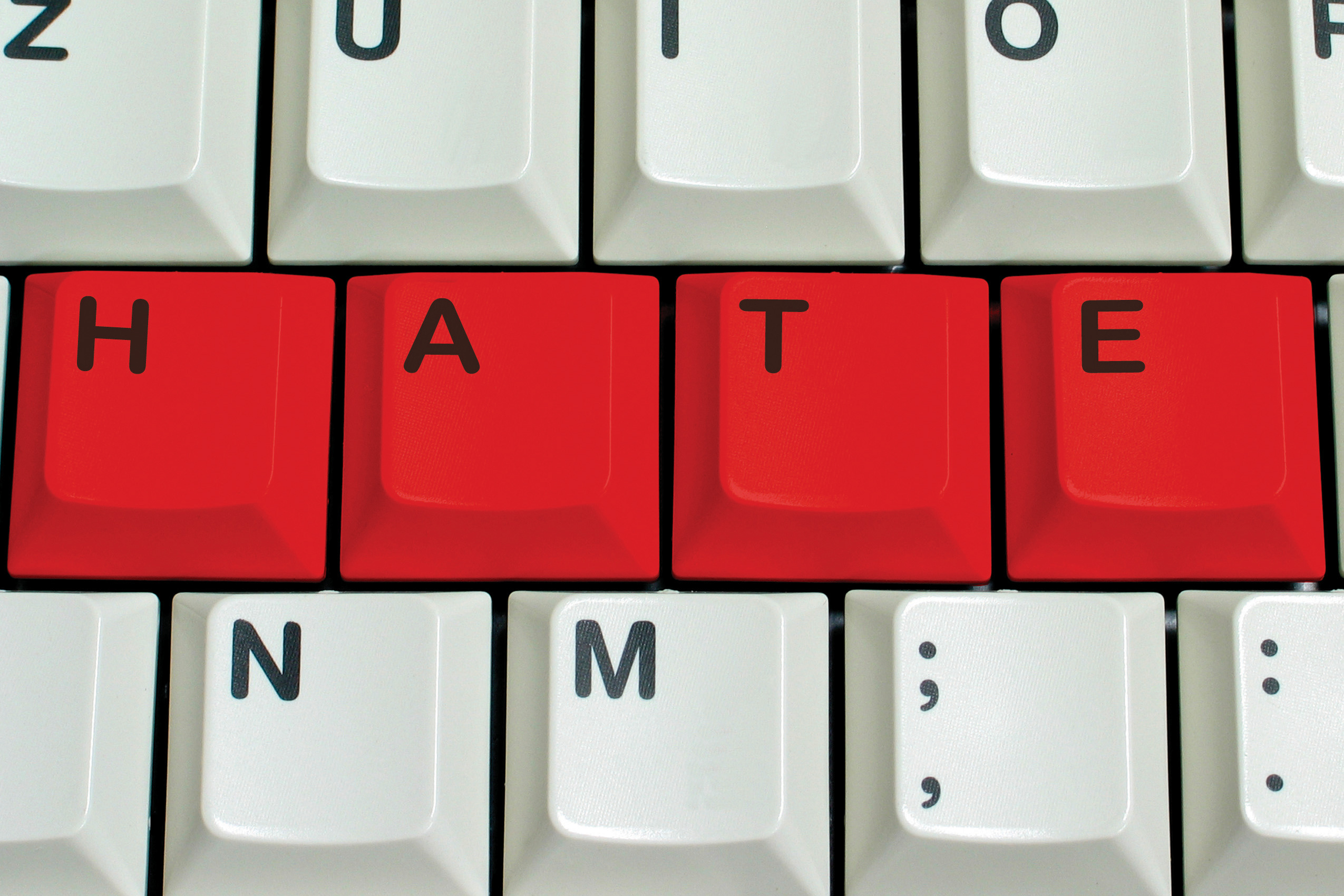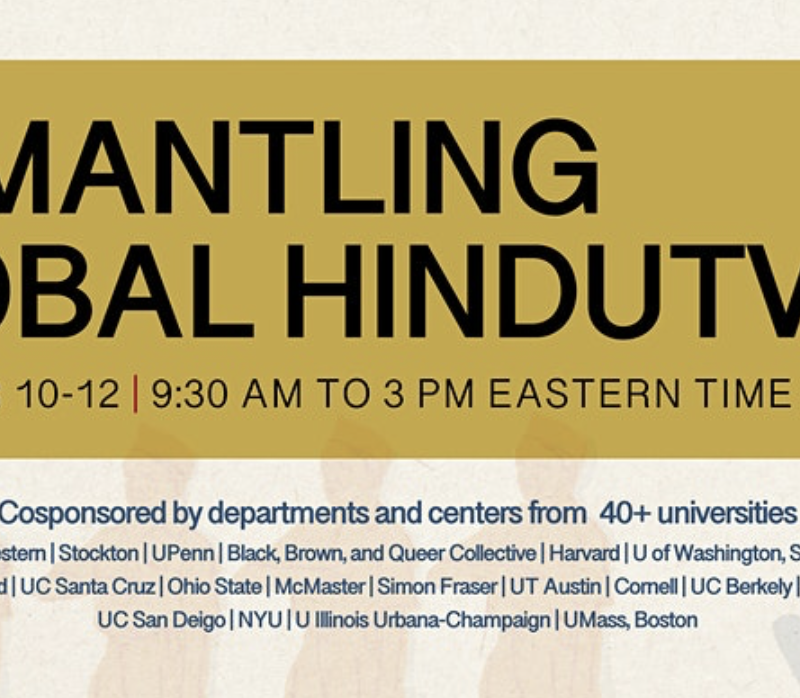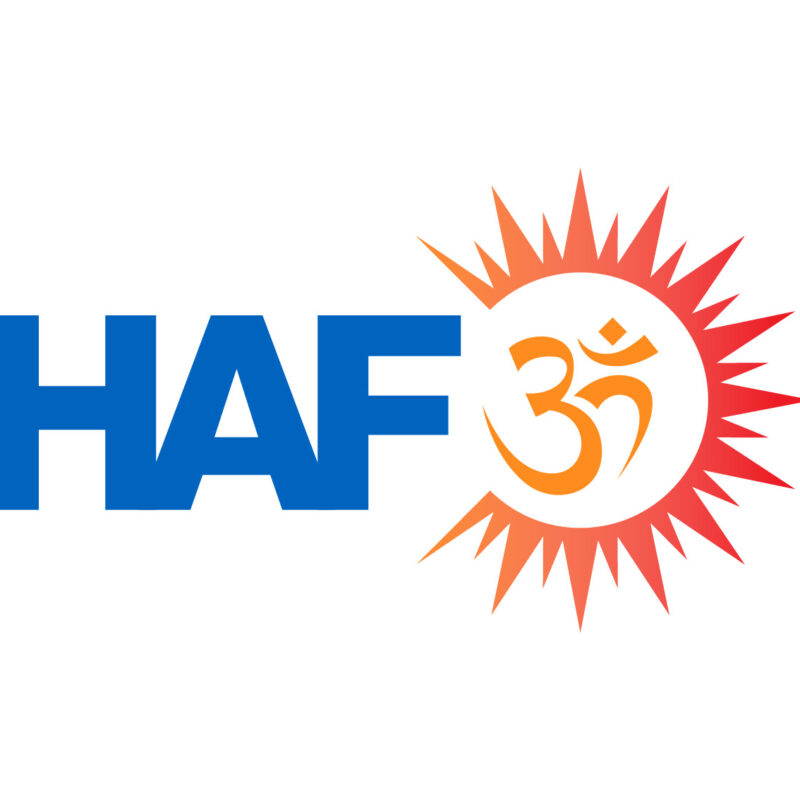
On September 10–12, a few dozen universities, mostly based in the United States, are supporting a conference titled “Dismantling Global Hindutva”.
In the words of the organizers this conference will “examine the historical development of Hindutva, the fascist dimensions of the ideology, and its perpetuation of violence against religious minorities and other marginalized communities.”
Based on their website, promotional materials, and their listed speakers’ past statements, this conference seems to be a calculated attempt to spread fear-mongering about Hinduism more than anything else.
As Hindu on Campus, a grassroots student movement, points out, conference speaker and Communist Party of India (Marxist-Leninist) member Kavita Krishnan attempted to link the killing of a Muslim woman by her brothers to the Hindu holiday of Raksha Bandhan, saying that the killing was in the spirit of the festival. Also scheduled to speak is Neha Dixit, who tried to blame dead bodies floating in Indian rivers during the ongoing coronavirus pandemic to the prices Hindu priests charge for cremation rituals. Other panelists have said derogatory, hyper-sexualized things about Lord Rama and concocted baseless theories that Lord Hanuman’s army in the Ramayana most truly represents the Dalit community being dehumanized and portrayed as monkeys.
Sadly, the conference organizers don’t even believe that Hinduphobia is a thing.
The conference website links to the South Asia Scholar Collective’s Hindutva Harassment Field Manual, which states that Hinduphobia is a “recently coined term popularized by the Hindu right.” (As a point of fact, the term itself has been used for more than 100 years, even if it has increased in use in the past two decades.)
The organizers go on to say that Hinduphobia “rests on the false notion that Hindus have faced systematic oppression throughout history and in present times […] anti-Hindu bias […] cannot be easily linked to casualties on such horrific scales.”
Tell that to the 10 million people displaced and the 3 million killed in the 1971 Bangladesh Liberation War, most of whom were Hindu, targeted for their supposed communal identity. Tell that to the last remaining 400 or so Hindus and Sikhs in Afghanistan attempting to flee religious persecution under resurging Taliban rule.
These are just contemporary examples of the violence that Hindus have faced because of their religious identity that run directly counter to the Marxist calculations of academic, journalistic, and activists that Hindus are always the perpetrators of violence in South Asia and never the victms.
Why are Hindus told they are “muscular” or fascist for standing up for accurate portrayal of their religious beliefs? Why are Hindus around the world too often expected to answer for politics in India even if they don’t live there or don’t pay attention to foreign politics at all?
Imagine if a conference was held during which Christians from all over the world were essentially accused of believing that the United States should be a Christian nation-state where other faiths are properly suppressed and non-American. Although some Christians in the US do believe (wrongly) that the country was founded as a Christian nation or ought to be officially made one, all Christians in the US nor those all over the world are not held accountable for it. They are not generally criticized for their practice of Christianity, nor if they point out when Christian beliefs are mischaracterized.
Such accusations leveled at Hindus are clearly rooted in some form of Hinduphobia and anti-Hindu implicit bias.
To the event organizers and attendees I say this: Please see Hindus as people. In attempting to silence your Hindu critics and lessen the humanity of others, you lessen your own humanity as well.
There is no reason to fear or hate Hindus, especially those of us who stand up for the human rights of Hindus when we face attacks and those of us who speak out when our beliefs are misrepresented or denigrated.
We come from a variety of backgrounds and political affiliations. Just like all other religious groups, we are complex and diverse.
We are friends and neighbors and not the monolithic threat you portray us as.
Although if stereotypes are necessary, consider us the friend or neighbor that can make a particularly good cup of chai.








































